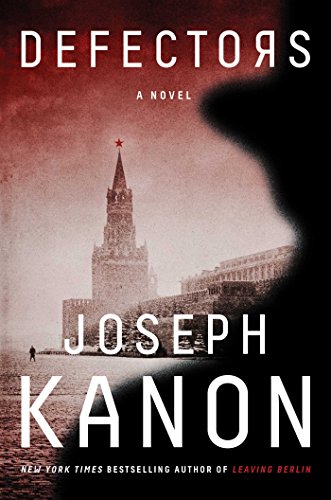Defectors
Moscow, 1961. It’s been twelve years since CIA agent Frank Weeks betrayed his country —and his own brother—then disappeared behind the Iron Curtain. Now a KGB officer, Frank lives in Moscow under the eye of his “protector,” KGB Colonel Boris Vassilchikov. Having completed a tell-all memoir, Frank summons his brother, Simon, now a publisher, to take it to press. But when Simon arrives, Frank employs his old boyish charm to overcome Simon’s misgivings and inveigle him, once again, into playing a pivotal role in a scheme that could go very wrong.
Knowing his brother for a cool, accomplished liar, Simon keeps his eyes open as he makes his first irrevocable move in what feels like a high-stakes chess match: “He had raised his eyes so that for a second they seemed to be looking over a handful of cards, and Simon saw that it wasn’t chess they were playing, but some elaborate game of poker, all of them playing, all of them cheating.”
But the truly baffling nature of the game and its many players—Frank, Simon, the press, the KGB, the CIA, and a community of CIA defectors—becomes apparent to Simon only when Boris reveals the identity of the man he’s really been sent to watch.
More than a spy thriller, Defectors is also a study in fidelity, a portrait of a man weighing loyalty to his older brother against the certainty that his brother wouldn’t hesitate to betray him again. The narrator’s fast-moving, muscular prose contrasts with the bitten-off cadences of the CIA defectors, a speech pattern reflecting the captives’ constant vigilance in the presence of ubiquitous KGB microphones. Complex plot twists skillfully laid out keep the reader riveted, always wondering what’s ahead but never confused. Joseph Kanon’s Defectors is recommended reading.










